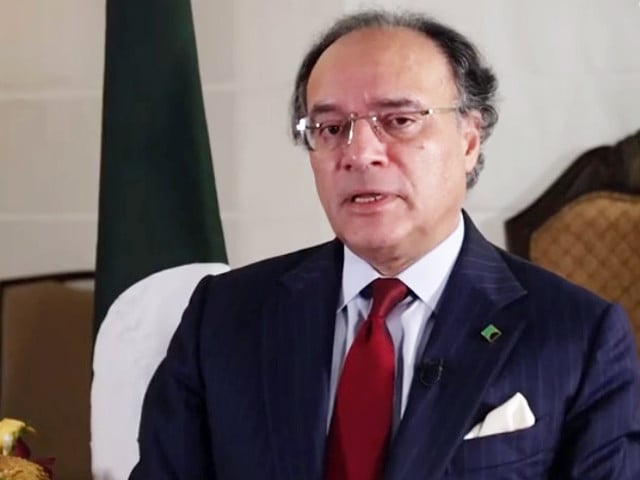Finance Minister Muhammad Aurangzeb has called on world leaders to reform global trade policies and argue that the development of nations is facing excessive customs, trade restrictions and economic barriers that prevent their economic growth and integration in the global economy.
Aurangzeb, who spoke at the Boao Forum for Asia 2025, highlighted how unreasonable global commercial practices disproportionately developed nations, leaving new economies struggling with high debt burdens, trade balances and limited economic access.
He warned that if these inequalities persist, the gap between rich and poor nations will continue to expand.
Aurangzeb emphasized that an inclusive global economy is not a choice, but a necessity that says that despite significant economic progress, the current system remains deeply unequal.
He pointed out that while some economies thrive under existing trade rules, others – especially those in the global south – are left due to systemic barriers.
To tackle this, he suggested the creation of a global alliance for inclusive trade and urged developing countries to unite and demand:
-
Fair trade policies that reduce tariffs and limitations for new economies.
-
Better representation in international financial institutions such as the IMF and the World Bank.
-
Greater access to digital and economic technologies to bridge financial differences.
Aurangzeb also called for taking advantage of technology as an equalization that suggested the establishment of global AI and Fintech funds that would support digital transformation and financial participation in developing countries.
The Minister of Finance emphasized the need for the G20 and the IMF to restructure superb debt to ensure financial stability in fighting economies. He argued that the current debt system traps develop nations in a cycle of economic distress and prevented them from achieving long -term economic growth.
In addition, he emphasized the importance of reforms of climate financing and noted that although Pakistan contributes less than 1% of global carbon emissions, it remains among the 10 most climate-vulnerable nations. He called for greater international support in climate financing and technology transfers to help develop countries to reduce and adapt to climate change.
Aurangzeb outlined Pakistan’s efforts to strengthen its financial foundation, citing initiatives such as Special Investment Facilitation Council (SIFC) and China-Pakistan Economic Corridor (CPEC). These projects, he said, have improved the trade potential, attracted foreign investment and improved infrastructure.
However, he noted that global cooperation is crucial in areas such as AI, Fintech and Digital Commerce, which could be significantly benefiting Pakistan’s small and medium -sized businesses (SMEs) by opening new financial opportunities.
“The time for talking is over. It’s time for action,” Aurangzeb claimed, encouraging global leaders to work with building a multilateral, innovation -driven economy that promotes fair trade, sustainable development and equal economic opportunities for all nations.



